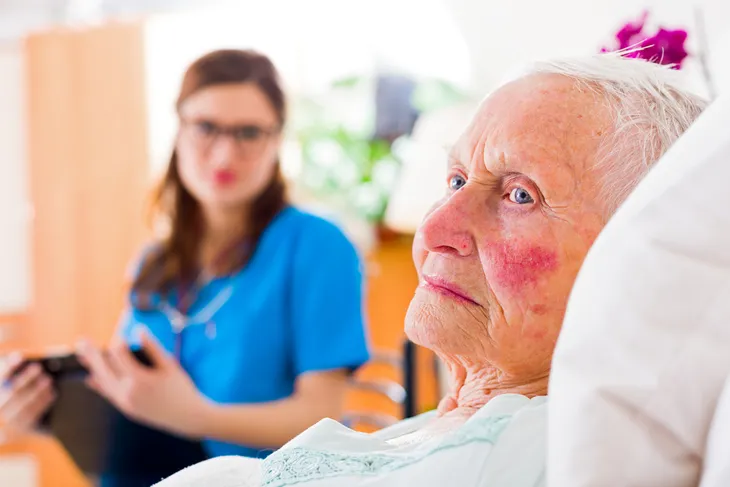When your mother, father, or another close family member has a serious health condition like heart failure or cancer, palliative care may be a good option to incorporate into their care.
Palliative care is a medical speciality that incorporates several professions including nurses, doctors, and nutritionists. These medical professionals provide guidance in maintaining the best quality of life while keeping the patient informed about their medical choices. When someone is in palliative care they are still receiving treatment for their illness, it is not hospice or end-of-life care.
They’ve Been Diagnosed with a Serious Illness
Choosing palliative care doesn’t mean that your loved one won’t continue to receive cancer treatments, according to the National Cancer Institute. Treatment can still be delivered while staff prepare the patient for either outcome.
“However, when a patient reaches a point at which treatment to destroy the cancer is no longer warranted, palliative care becomes the total focus of care,” notes the source. Treatment can still be delivered to minimize unpleasant side effects and mitigate emotional pain, it adds. Hospice care is often the next step, when all other options have been exhausted.
Their Suffering has Become Unbearable
While all doctors have a goal to reduce patient suffering due to disease or other health conditions, palliative doctors “have special training and expertise in pain management and symptom control,” according to PalliativeDoctors.org.
Not only does a palliative caregiver help to improve quality of life for a patient, but also can help you and other family members understand what’s happening and cope, adds the source. Palliative health professionals can also help curb emotional suffering from anxiety and depression, which some clinical doctors are not trained to deal with.
There are Frequent Emergency Room Visits
WebMD notes that if the patient in question has a serious illness that’s landing them in the emergency room often, then it’s likely a good time to consider palliative care.
In fact, a post on the U.S. National Library of Medicine concludes that a patient’s palliative care journey may begin during an emergency department (ED) visit. “Although the ED is not considered an ideal place to begin palliative care, hospital-based physicians may assist in eliciting the patient’s goals of care and discussing prognosis and disease trajectory,” notes the post.
Providing Care is Sapping Your Own Life
This may sound a bit on the selfish side, but it’s not really. If you’re a caregiver that has been assisting in home care between doctor visits, you may be the one trying to reassure your loved one about the future (on top of taking them to several medical appointments). This can lead to emotional burnout, which can be troublesome especially if you have your own family or career to focus on.
“Caregivers are often reluctant to express these negative feelings for fear they will be judged by others (or judge themselves) or don’t want to burden others with their problems,” notes the Family Caregiver Alliance. Palliative doctors can help take up the slack of providing comfort to your loved one.
You Need Ongoing Advice about Medical Procedures
Palliative doctors can also be your go-to person when deciding whether to go through with certain medical procedures. One of the goals of palliative care is open communication, which can extend to informing you about current care and possible treatments.
Palliative teams can advise you about the risks of a medical procedure, or the likelihood of its success, for example. They can be an ally in decision-making throughout the palliative care process, and ensure you’re not in the dark about your loved one’s health status.
They Need Additional Therapy
On top of receiving primary medical care, your loved one will have access to a team of therapists when choosing palliative care, notes GetPalliativeCare.org. The core palliative team often consists of not only physicians and nurses, but also massage therapists, notes the source.
This can be a drug-free way to maintain quality of life and pain relief, or used in conjunction with pain medications. Of course, the team also has social workers/palliative care specialists to help your loved one through the process. Keep in mind that palliative care is not the end of the road, many patients end up leaving palliative care and living for many more years.









